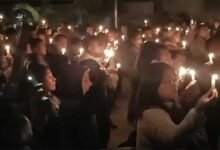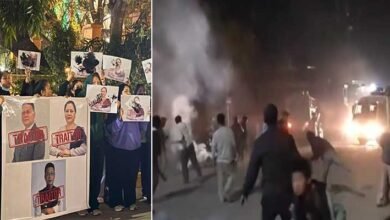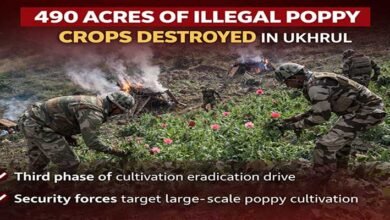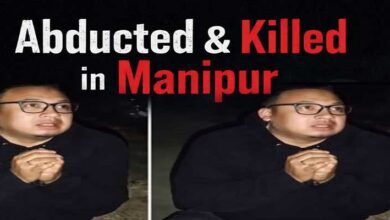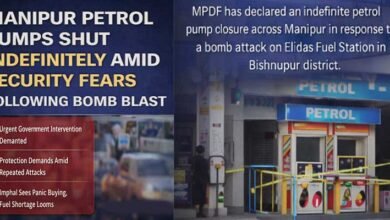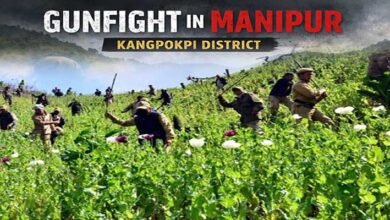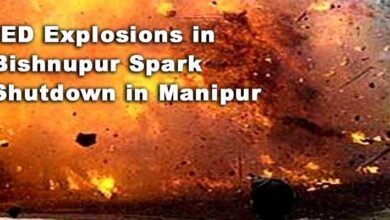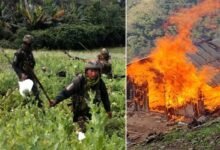Manipur Burns Again After Arrest of Arambai Tenggol Leader; Curfew, Internet Shutdown Imposed
The arrests, with one member detained at Imphal Airport and transported to Guwahati for legal proceedings, triggered widespread protests across five valley districts
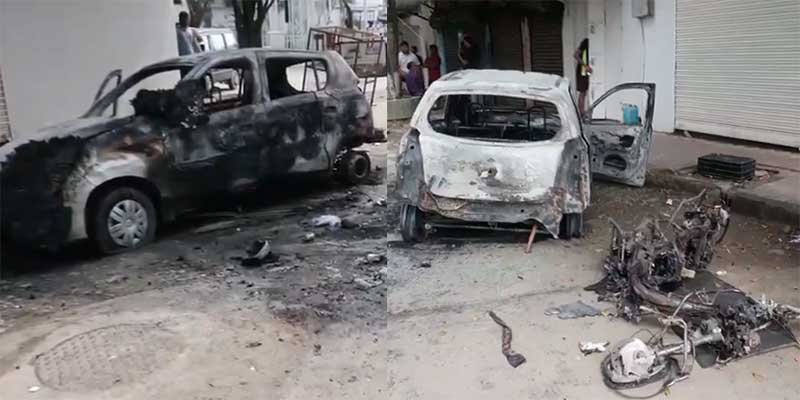
IMPHAL- Imphal Valley of Manipur erupted in violence on Saturday night, June 7, extending into Sunday, following the arrest of five leaders of the Arambai Tenggol, including prominent figure Kanan Singh, by the Central Bureau of Investigation (CBI) and other authorities.
The arrests, with one member detained at Imphal Airport and transported to Guwahati for legal proceedings, triggered widespread protests across five valley districts—Imphal West, Imphal East, Thoubal, Bishnupur, and Kakching—deepening the state’s ongoing ethnic tensions.
Angry mobs, demanding the immediate release of the detained leaders, stormed the Kwakeithel Police Outpost in Imphal West, set fire to a bus in Khurai Lamlong, Imphal East, and blocked roads with burning tyres and furniture.
Watch Video
At least three individuals, including two journalists, were injured during the confrontations, with allegations of assault by security personnel.
In response, the Manipur government imposed a total curfew in Bishnupur and prohibitory orders banning gatherings of four or more people in Imphal West, Imphal East, Thoubal, and Kakching.
Also Read- Indian Astronaut Shubhanshu Shukla Set to Soar on Historic Axiom-4 Mission to ISS
Internet and mobile data services, including VSAT and VPN, were suspended for five days starting at 11:45 PM on June 7 to curb the spread of inflammatory content. Commissioner-cum-Secretary (Home) N. Ashok Kumar cited concerns over “anti-social elements” using social media to incite unrest.
The violence comes amid Manipur’s fragile state under President’s Rule, imposed on February 13, 2025, following the resignation of Chief Minister N. Biren Singh.
Critics, including Congress leader Jairam Ramesh, have accused the central government of failing to address the ethnic divide between Meiteis and Kuki-Zo communities, with the state split into ethnic zones separated by security buffers.
